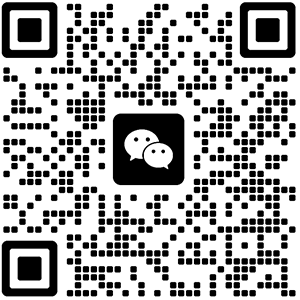Introduction

Teaching English effectively is a challenging task that requires careful planning, innovative strategies, and a deep understanding of the language and its pedagogy. In this article, I will share my experiences and insights gained while teaching English to seventh-grade students. Through the use of comparative and contrasting techniques, as well as rhetorical and evaluative methods, I aim to captivate readers and pique their interest in effective English teaching.
Effective Lesson Planning
One crucial aspect of efficient English teaching is meticulous lesson planning. By carefully organizing the flow of each lesson, educators can optimize students’ learning experience. Since the seventh-grade curriculum focuses on grammar, vocabulary, and reading comprehension, lessons must encompass a variety of activities that cater to these aspects.
To engage students and ensure active participation, I incorporated interactive games and multimedia resources into my lessons. For instance, I introduced online platforms that allowed students to practice vocabulary through interactive quizzes and games. By doing so, I observed a significant improvement in students’ retention and application of learned vocabulary.
Innovative Strategies
In addition to engaging lesson plans, innovative teaching strategies are essential to foster a dynamic and effective learning environment. As an example, I implemented a flipped classroom approach, where students were encouraged to watch videos or read articles related to the upcoming topic before class. This pre-learning preparation allowed for more in-depth discussions and critical thinking during class time.
Moreover, I employed project-based learning activities to enhance students’ language skills. By assigning group projects that required research, critical analysis, and presentation skills, students were able to apply their English knowledge to real-life scenarios. Not only did this approach improve their language proficiency, but it also developed their teamwork and problem-solving abilities.
Creating an Inclusive Classroom
Establishing an inclusive classroom environment is paramount for effective English teaching. By acknowledging and valuing each student’s unique abilities, interests, and learning styles, educators can create a supportive and engaging atmosphere that maximizes learning outcomes.
To cater to diverse learning styles, I incorporated a variety of teaching methods such as visual aids, kinesthetic activities, and auditory materials. By presenting information in multiple formats, students were actively involved in the learning process, enhancing their comprehension and retention.
Furthermore, I encouraged students to actively participate in classroom discussions and express their opinions freely. By fostering an inclusive and non-judgmental environment, students felt encouraged to share their thoughts and develop their communication skills. This approach not only improved their English proficiency but also cultivated their critical thinking and empathy.
Conclusion
In conclusion, effective English teaching requires meticulous lesson planning, innovative strategies, and an inclusive classroom environment. By utilizing interactive resources, innovative teaching approaches, and an inclusive teaching style, I have observed significant improvements in my students’ language proficiency, critical thinking, and teamwork skills. As educators, it is crucial to continuously reflect on our teaching methods and adapt them to meet the diverse needs of our students. Through these experiences, I have come to appreciate the transformative power of effective English teaching and remain committed to further enhancing my pedagogical practices.
英语实训总结
【引言】
英语实训是现代职业教育中的重要环节,旨在提升学生的英语应用能力和沟通技巧。本文将对英语实训的重要性、特点和实施方式进行介绍,以及对其效果和前景进行评价和展望。
【实训内容的多样性】
英语实训的内容十分丰富多样,涵盖了听力、口语、阅读、写作等多个方面。实训课程结合职业需求,注重实战能力培养。通过模拟商务会议的角色扮演,学生可以锻炼交流和谈判技巧,提高团队协作能力;通过阅读商业案例分析和撰写商业报告,学生不仅扩展了专业词汇和表达能力,还培养了数据分析和逻辑思维能力。
【实训方式的灵活性】
为了提升学生的实际应用能力,英语实训采用了多种灵活的教学方式。除了传统的课堂教学,还有小组讨论、项目合作等实践活动。学生在合作中互相帮助和交流,学习如何在真实场景中运用所学知识。借助现代技术手段,如在线教育平台和虚拟实境技术,学生可以通过网络平台进行英语实训,提高学习效率和便捷性。
【实训效果的评价与展望】
英语实训的效果得到了广泛认可。通过实训,学生的英语水平和综合能力得到了明显提升,更好地适应了全球化时代的职业发展需求。随着人工智能和大数据的发展,英语实训将更加贴近实际工作环境,提供个性化的学习方案,以满足不同学生的需求。更加注重英语实训与行业实践的结合,为学生提供更多实际工作体验,增强职业竞争力。
【结论】
英语实训作为职业教育的重要组成部分,在提升学生的英语能力和职场竞争力方面发挥了重要作用。丰富多样的实训内容和灵活多样的实训方式,使得学生能够全面提高英语应用能力。英语实训的未来充满发展前景,将以更加丰富多样的形式满足学生需求,为他们的职业发展提供良好的基础。
七上英语教学工作总结
引言:
七上英语教学工作的总结旨在回顾过去的教学工作,总结经验教训,并对未来教学工作提出改进方案。本文将从教学目标、教材使用、教学方法、实施效果等多个方面进行介绍和说明,以期为教师们提供一些参考和指导。
教学目标:
对于七上英语教学工作来说,教学目标的明确性和可达性是至关重要的。在教学过程中,教师应该根据学生的实际情况和能力水平,合理确定教学目标,并精确描述这些目标。通过比较不同学生的学习情况和提供个性化的辅导,可以更好地激发学生的学习兴趣和动力。
教材使用:
在教材选择和使用方面,教师应根据学生的实际需求和学习特点,选择合适的教材,并合理运用教材中的各种资源和素材。教师还可以通过补充教材来提高学生的英语水平,比如使用多媒体课件、教学软件等。通过对教材的比较和对比,教师可以更好地把握教材的优势和不足,以便更好地指导学生的学习。
教学方法:
在选择和运用教学方法时,教师应结合学生的实际情况和学习特点,采用多种教学方法,如讲解法、示范法、合作学习法等,以激发学生的积极性和主动性。教师还可以通过问题导向的教学方法,让学生在解决问题的过程中提高自己的语言能力。通过对不同教学方法的比较和对比,教师可以找到最适合自己和学生的教学方法,并不断改进和提高教学效果。
实施效果:
在教学工作的实施效果方面,教师应对每个学生的学习情况进行全面的评估和分析,并及时反馈给学生和家长。通过对学生成绩和学习反馈的比较和对比,教师可以了解学生的学习状况,并根据需要进行针对性的辅导和指导,以提高学生的英语水平和学习成绩。教师还可以与其他教师进行交流和合作,共同研究和解决教学中的问题,以提高教学效果。
通过对七上英语教学工作的我们可以发现,在教学目标、教材使用、教学方法和实施效果等方面,都存在一些优点和不足之处。教师们应不断总结经验教训,改进教学方法,以提高教学质量和效果。教师们还应积极参加培训和研讨活动,不断提高自己的专业知识和能力。相信通过不断努力和改进,教师们能够取得更好的教学效果,使学生在英语学习中取得更大的进步和成就。
主题测试文章,只做测试使用。发布者:rekoe,转转请注明出处:https://www.mulub.com/9321.html

 微信扫一扫
微信扫一扫  支付宝扫一扫
支付宝扫一扫 